EU-Western Balkans cooperation on transnational crimes
| Prof. in charge | Anna Oriolo (Key Staff Member) |
The present research activity will carry out knowledges and critical assessment concerning Western Balkans as origin areas for cross-border offences into the rest of Europe.
Organised crime activities are mainly linked to illicit trafficking in arms, drugs and human beings. The increasing involvement of strong organized crime groups in the Balkan region reflects a concern of the EU due to the importance of the region as a geopolitical and geo-economic hub between the EU, Turkey, the Middle East and Russia. Further, as borders dissolve in Europe, the opportunity for various forms of exploitation increases, presenting new challenges. Similarly, challenges of terrorism were soon recognised as a priority issue in the EU-Western Balkans relations. The topic gained a prominent place through the EU Global Strategy and resulted in some resolute steps at policy level at respective EU-Western Balkans forums. In this direction, the Join Action Plan on Counter-Terrorism requires to each Western Balkans Country to align its legal Counter-Terrorism framework with the relevant legal instruments of the EU and international bodies. In fact, the EU’s latest enlargement strategy of February 2018 reinstates security and rule of law as a conditio sine qua non in terms of a reinforced EU perspective for the region.
Therefore, this research activity will focus on the political choices, the applied rules, the political and legal instruments adopted at international, European and national level to reinforce reform efforts and bring tangible progresses in this sector.
It will follow a practical approach aimed at framing the measures adopted to prevent and reduce transnational crimes with a particular focus on the cooperation between ICC and EU. It will also consists of the analysis of the legal and regulatory frameworks with a focus on the situation of each Western Balkans Countries since cooperation and coordinated response measures remain of crucial importance for the prevention of transnational crimes.
They will also consist of the analysis of the impact on the legal systems of each Western Balkans Countries, according to a multidisciplinary approach that includes criminal law and criminal procedural law, constitutional law, European and international law. Furthermore, they will focus on what obstacles might exist in national legislation and practice of the Western Balkans states that might hinder or complicate the efficiency of international cooperation, according to European standards. Thus, the approach will be considered as problem-focused.
The research contents will concern the following main topics: The evolution of EU criminal law and procedure; European Criminal Law Framework: sources, actors and procedures; The concept of universal jurisdiction and the role of EU; International crimes and EU actions; EU, International Criminal Court (ICC) and third States; defence rights and recognition-execution of decisions and sentences; mutual recognition in criminal matters and accompanying measures; the external dimension of EU action in criminal matters.
METHODOLOGY
The methodology adopted will allowed to combine theory and practice in order to analyse the EU integration of Western Balkans Countries with specific reference to:
- Operative definitions of the issues of the cooperation on transnational crimes;
- Operative definitions goals;
- Operative definitions of the field of investigation;
- The EU-Western Balkans summit and forum;
- Evolving analysis of the transnational crimes’ issues in the Western Balkans Countries;
- What has done;
- What remains to be done;
- Results.
IMPACT
As for the impact, it will contribute to the cultural growth of academics, professionals and civil environments.
Academic impact will consist of understanding and advancing scientific, method, theory and application across and within disciplines of EU-Western Balkans Cooperation on Justice and Home Affairs.
The societal impact will be the demonstrable contribution that excellent research makes to society and its benefits to individuals, stakeholders and partners involved.
Specifically, the impact of research will be:
- Instrumental, contributing to the development of policy, practice or service provision, shaping legislation;
- Conceptual, contributing to the understanding of policy issues and debates;
- Capacity building, through technical and personal skill development.
RESULTING PUBBLICATIONS
The annual results of this research will be included on the website in the section of publications as OER.
The final results of this research will be published in the specific section of the book presented at the end of module.






